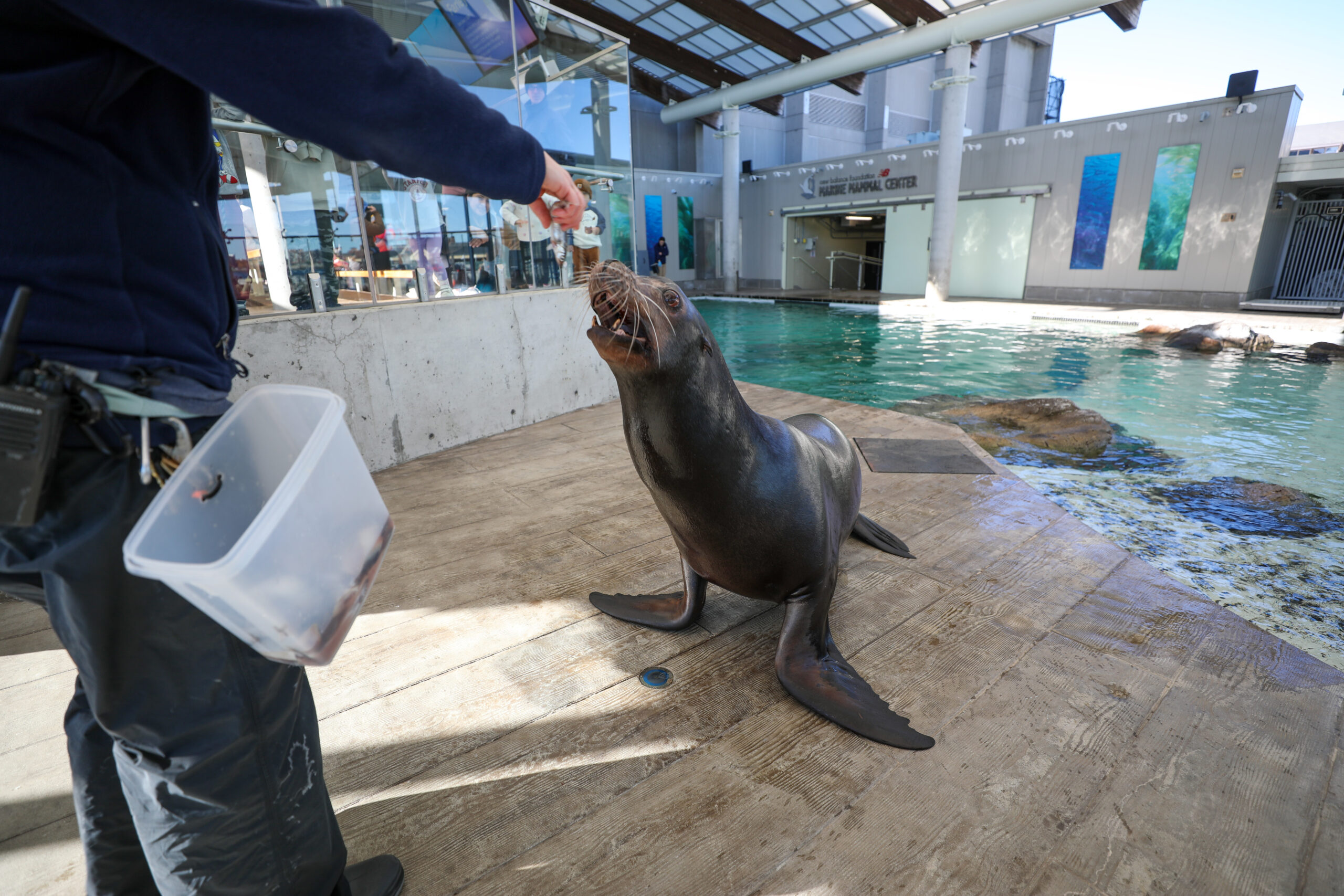
BOSTON, MASS. (Nov. 29, 2023) – Two California sea lions that moved to the New England Aquarium from Birmingham, AL, are adjusting to life in Boston as they develop relationships with their new trainers.
**PHOTOS AND VIDEO AVAILABLE HERE WITH CREDIT TO NEW ENGLAND AQUARIUM**
Earlier this year, the Birmingham Zoo made the difficult decision to permanently close their sea lion habitat and rehome their sea lions, “Farley” and “Giovanni,” to the Aquarium in cooperation with the Association of Zoos and Aquariums’ (AZA) California Sea Lion Species Survival Plan. The 15-year-old sea lions are now permanent residents in the Aquarium’s New Balance Foundation Marine Mammal Center, joining three other California sea lions: Zoe, Sierra, and Tipper.
“We are very excited for the addition of a male sea lion and an additional female sea lion. Farley and Gio are at the perfect age to socialize with our resident sea lions, and we feel that this will not only be very enriching for all five of the sea lions but also align with our goal of providing the highest level of care for our animals,” said Kristen McMahon, Curator of Pinnipeds and Penguins at Aquarium.
Aquarium staff worked closely with the Birmingham Zoo to ensure a smooth and successful transition for the animals. The California sea lions traveled to Boston on a FedEx flight back in June, accompanied by trainers and an Aquarium veterinarian. The past few months, the animals have been building relationships with their new trainers and gradually transitioning to the exhibit space as they adjust to life with the Aquarium’s other resident sea lions.
“Farley spent almost 15 years living with one female sea lion, so we have taken a gradual approach to acclimating him to a habitat with four females,” said Patty Leonard, the Aquarium’s Assistant Curator of Pinnipeds. “During that process, Farley has worked with multiple trainers on our staff, who are reinforcing socially appropriate behaviors.”
The Aquarium team places a high priority on husbandry, which involves specialized training to get the animals comfortable with healthcare. The sea lions are slowly exposed to different stimuli, including medical equipment, with trainers employing positive reinforcement. This allows staff to draw blood samples, conduct eye exams, and do routine weigh-ins.
“We keep layering on complexity as the animal gets more comfortable. Desensitization is the most important component of healthcare for animals and ensures our sea lions thrive in human care,” McMahon said.
Farley and Gio stranded on California beaches twice in 2009 and were deemed unable to return to their natural habitat after undergoing care at the Marine Mammal Center in Sausalito, CA. The animals then moved to the Birmingham Zoo through a recommendation by the California Sea Lion Species Survival Plan (SSP). The Birmingham Zoo and New England Aquarium join other zoos and aquariums around the world in participating in SSP programs that manage animal populations in zoos and related facilities, including providing standards for care, health, and wellbeing. All of the California sea lions at the Aquarium are rescued animals that were unable to return to the ocean.
MEDIA CONTACT: Pam Bechtold Snyder, psnyder@neaq.org; 617-686-5068
